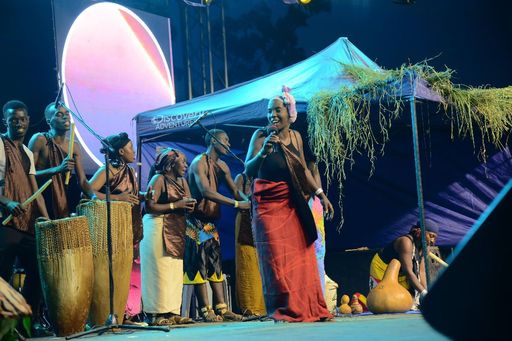History is strewn with dead languages, each a dirge to a community that lost its voice and, with it, maybe something intrinsic to its survival.
The Songhay-Zarma-Dendi people, scattered across Africa's Sahel region, know what it means to hold on to their language amid the mayhem wrought by cultural erosion worldwide.
Rather than wait for linguistic extinction, they gather each August in a different member country to speak, celebrate and strategise in their shared tongue.
Niger's capital city, Niamey, hosted the 2025 edition in August, with over two days of interactions where language served as both a cultural celebration and a practical tool for addressing the region's most pressing challenges.
Prof Mamoudou Djibo, a Nigerien historian and politician who chairs the organising committee, sees these gatherings as vital for more than cultural preservation.
"This international cultural gathering aims, above all, to bring together all the linguistic communities of the Songhay-Zarma-Dendi region. We invite all communities because that is integral to understanding the links and relationships that we don't know about," he tells TRT Afrika.
"Discovery and symbiosis can be the catalyst for cohesion. It can help create what we call 'Amana', or a shared responsibility and obligation between people. Committing to the concept of 'Amana' means people are obliged to respect and cooperate, which, in turn, contributes to national unity."
Transcending language
The Songhay-Zarma-Dendi community's linguistic roots are spread across Niger, Burkina Faso, Mali, Benin, Ghana, Côte d'Ivoire, Sudan, Nigeria, and southern Algeria's Tab region.
For the people of these diverse territories, the annual gathering serves the dual purpose of keeping their language alive through active use while also providing a platform to address common socio-political and environmental issues.

While the event is focused on language, it also encourages a healthy discourse on the socio-political and cultural challenges confronting the Songhay-Zarma-Dendi people.
Thought leaders from across the spectrum conduct workshops entirely in their native languages, discussing issues ranging from terrorism in the Sahel to the need for environmental conservation and ecological behaviour.
"The communities that experience the daily onslaught of terrorism are best placed to help the authorities in their search for solutions. Intellectuals must participate in the search for solutions," explains Prof Djibo.
"In one of the forums we organised, we brought together representatives of the heads of state of the AES (Alliance of Sahel States) countries to create a fairly fluid mechanism for providing political authorities with accurate information in real time, and enabling the central government to take measures to counter possible attacks."
Participants across generations conclude their forums with concrete recommendations for public authorities on social and economic development.
Initiative amid flux
The Songhay-Zarma-Dendi congregation traces its origins to Mali in the early part of this millennium, when the Sonrhaï International Festival of Arts and Culture (FIASC) was held in Gao.
Even as northern Mali faced turbulence, cultural exchanges took place in Bamako and then Ouagadougou in neighbouring Burkina Faso.
Niamey was to first host the event in 2020, but the pandemic and general elections in Niger kept the capital city waiting until this year.
The event fosters the feeling of shared ethnic, linguistic and cultural affiliation.
According to the celebrated Kenyan author Ngugi wa Thiong'o, who famously stopped writing in English later in his career so that he could promote his native tongue Gikuyu, language is the soul of culture that ‘‘can't be left to die.’’
The Songhay-Zarma-Dendi people choose to keep their language alive so that they may live.



















